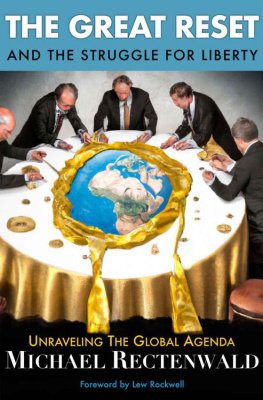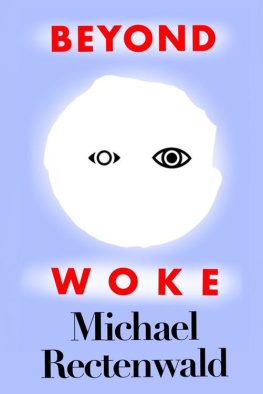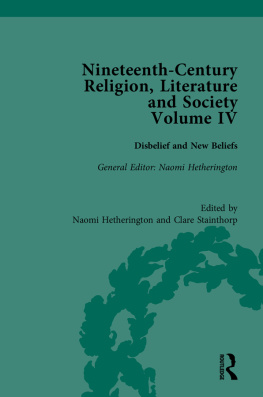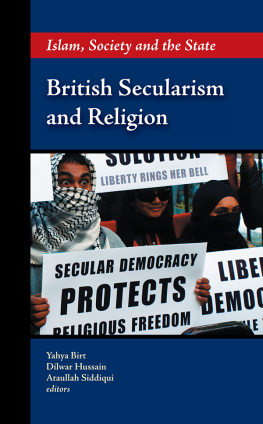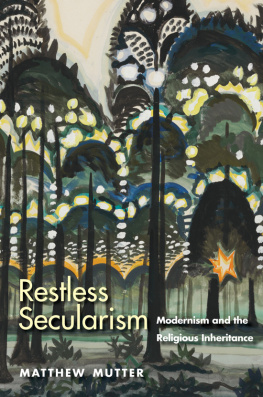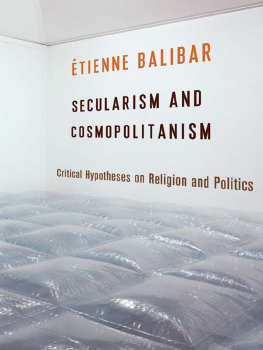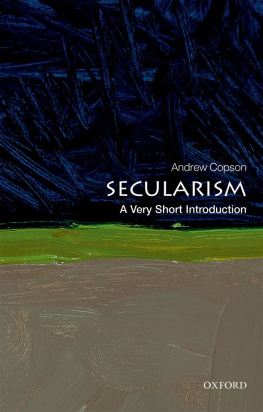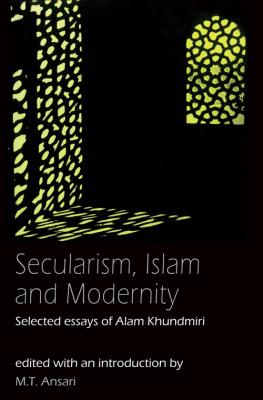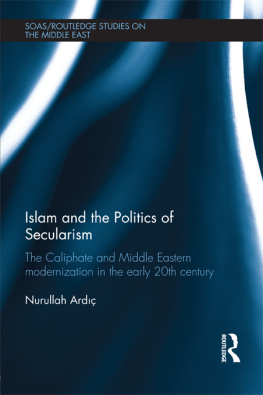Nineteenth-Century British Secularism
Histories of the Sacred and the Secular, 17002000
General Editor: Professor David Nash, Oxford Brookes University, UK
Editorial Board: Professor Callum Brown, Dundee University, UK; Professor William Gibson, Oxford Brookes University, UK; Dr Carole Cusack, Sydney University, Australia; Professor Beverley Clack, Oxford Brookes University, UK; Dr Bert Gasenbeek, Humanist University, Utrecht, Netherlands; Professor Paul Harvey, University of Colorado at Colorado Springs, USA
This series reflects the awakened and expanding profile of the history of religion within the academy in recent years. It intends publishing exciting new and high quality work on the history of religion and belief since 1700 and will encourage the production of interdisciplinary proposals and the use of innovative methodologies. The series will also welcome book proposals on the history of Atheism, Secularism, Humanism and unbelief/secularity and to encourage research agendas in this area alongside those in religious belief. The series will be happy to reflect the work of new scholars entering the field as well as the work of established scholars. The series welcomes proposals covering subjects in Britain, Europe, the United States and Oceana.
Titles include:
John Wolffe (editor)
IRISH RELIGIOUS CONFLICT IN COMPARATIVE PERSPECTIVE
Catholics, Protestants and Muslims
Clive D. Field
BRITAINS LAST RELIGIOUS REVIVAL?
Quantifying Belonging, Behaving and Believing in the Long 1950s
Jane Platt
THE ANGLICAN PARISH MAGAZINE 18591929
Jack Fairey
THE GREAT POWERS AND OTTOMAN CHRISTENDEM
The War for the Eastern Church in the Era of the Crimean War
Michael Rectenwald
NINETEENTH-CENTURY BRITISH SECULARISM
Science, Religion, and Literature
Histories of the Sacred and the Secular 17002000
Series Standing Order ISBN 9781137328007 (hardback)
(outside North America only)
You can receive future titles in this series as they are published by placing a standing order. Please contact your bookseller or, in case of difficulty, write to us at the address below with your name and address, the title of the series and the ISBN quoted above.
Customer Services Department, Macmillan Distribution Ltd, Houndmills, Basingstoke, Hampshire RG21 6XS, England
Nineteenth-Century British Secularism
Science, Religion, and Literature
Michael Rectenwald
Scholar, Liberal Studies, New York University, USA


NINETEETH-CENTURY BRITISH SECULARISM: SCIENCE, RELIGION, AND LITERATURE
Copyright Michael Rectenwald, 2016
All rights reserved. No reproduction, copy or transmission of this publication may be made without written permission. No portion of this publication may be reproduced, copied or transmitted save with written permission. In accordance with the provisions of the Copyright, Designs and Patents Act 1988, or under the terms of any licence permitting limited copying issued by the Copyright Licensing Agency, Saffron House, 610 Kirby Street, London EC1N 8TS.
Any person who does any unauthorized act in relation to this publication may be liable to criminal prosecution and civil claims for damages.
First published 2016 by
PALGRAVE MACMILLAN
The author has asserted his right to be identified as the author of this work in accordance with the Copyright, Designs and Patents Act 1988.
Palgrave Macmillan in the UK is an imprint of Macmillan Publishers Limited, registered in England, company number 785998, of Houndmills, Basingstoke, Hampshire RG21 6XS.
Palgrave Macmillan in the US is a division of Nature America, Inc., One New York Plaza, Suite 4500 New York, NY 10004-1562.
Palgrave Macmillan is the global academic imprint of the above companies and has companies and representatives throughout the world.
Hardback ISBN: 9781137463883
E-PUB ISBN: 9781137463890
E-PDF ISBN: 9781137463890
DOI: 10.1057/9781137463890
Distribution in the UK, Europe and the rest of the world is by Palgrave Macmillan, a division of Macmillan Publishers Limited, registered in England, company number 785998, of Houndmills, Basingstoke, Hampshire RG21 6XS.
Library of Congress Cataloging-in-Publication Data is available from the Library of Congress
A catalog record for this book is available from the Library of Congress
A catalogue record for the book is available from the British Library
Typeset by MPS Limited, Chennai, India.
Contents
Acknowledgements
This book owes a great deal to many colleagues, friends, and supporters who have helped guide its contents and encourage its making. For generous and timely readings of the proposal and/or parts of the manuscript, I am indebted to Patrick Corbeil, Anthony Galluzo, Nancy Henry, David Hoelscher, Stephanie McCarthy, Edward Radzivilovskiy, Dylan Rectenwald, Victoria Sams and Sarah Jo Skaggs. I am especially indebted to my long-time mentor, Jon Klancher. Jons indispensable advice on the Introduction to this book represents what I take to be a major contribution.
I am grateful for the inspiration and support of the series editor, David Nash, and for the generous guidance and shepherding of this book through the publication process by Palgrave Macmillan editor Jenny McCall. I thank Jennys editorial assistant, Jade Moulds, for keeping me on task and interceding on my behalf.
I owe a tremendous debt of gratitude to my long-time friend, confidante, and editorial and research assistant, Lori R. Price. Loris tireless and ongoing readings of all parts of this manuscript in nearly every phase of its production have served not only to improve my writing but also to stimulate it. I cannot say enough about Loris unflagging support, continual guidance, and steadfast belief that this book would come to fruition.
Finally, I want to thank my life-partner and the love of my life, Sarah Jo Skaggs. Thanks to Sarah, I have been endowed with the space, time, and deeply peaceful environs that I desperately needed to complete this work. Most importantly, her patience and love have been the mainstays of my life.
Parts of of this book represent revisions of my essay, (2013) Secularism and the Cultures of Nineteenth-Century Scientific Naturalism, originally published in the British Journal for the History of Science 46.2, 23154. I want to thank the editor and publisher for permission to reprint parts of this material.
I would like to thank the New York University Center for the Humanities for their support of this project.
Introduction: Secularity or the Post-Secular Condition
This book addresses the recent criticism and breakdown of the secularization thesis, a development that amounts to a crisis in the concept of secularism and in the long-held assumptions about an inevitable modernization from traditional, religious worlds to secular ones. Until the last decades of the twentieth century, secularization was generally regarded as a nearly indisputable fact of modern life and a staple of sociological thinking. A broadly held belief in secularization, what I call the standard secularization thesis, pointed to religions continual and inevitable decline. In the conjectures of the earliest sociologists including Auguste Comte, Karl Marx, and Max Weber secularization was considered an inevitable result of modernization: urbanization, industrialization, the rise of science, individualization, and so forth. Secularization was understood as teleological and irreversible, ending in the ultimate extirpation of religion and the death of God.
Next page

